Japanese Names For Babies
Japanese Americans constitute the sixth largest Asian American group in the USA. It is, therefore, no surprise that so many new parents are looking for Japanese names.
Japan is an island-nation known for its traditional arts, tea ceremonies, calligraphy, technology, anime, distinctive gardens, sculptures, sushi, flower arranging… the list goes on. It is truly rich in history and culture. Babies can, therefore, wear their Japanese names with pride.
For your convenience, this post is sorted in alphabetical order. You will be able to find the most comprehensive list of Japanese names, their meanings, and pronunciations, in the following categories:
Contents
Japanese Boy Names
Aito
Aito means “affectionate” or “second love” and pronounced as a-EE-toh. 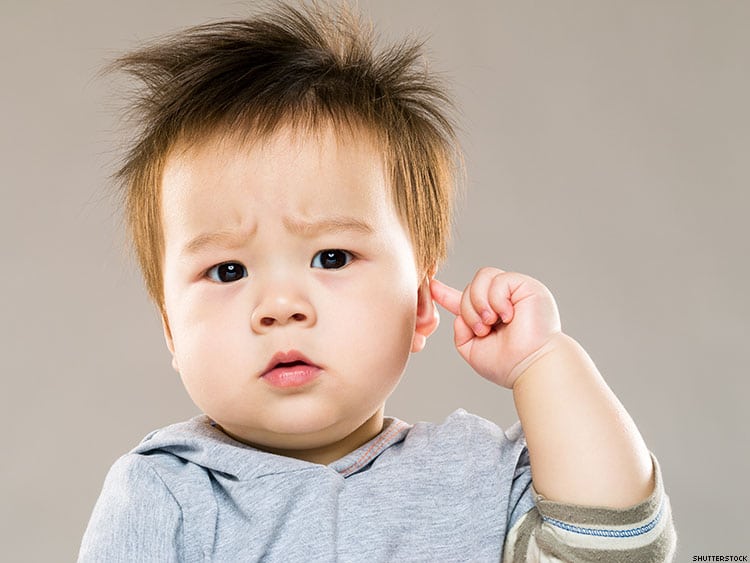
Akio
Akio means “bright man” or “smart” and pronounced as A-KEE-O.
Akiro
Akiro means “bright boy” and pronounced as a-kee-ro. Akiro is well used in Japan, the first name of famed director Kurosawa.
Arata
Arata means “fresh, new” and pronounced as A-RA-TA.
Asahi
Asahi means “morning sun” or “morning light” and pronounced as a-sah-hee.
Ayumu
Ayumu means “walk; dream; vision” and pronounced as A-YOO-MOO.
Benjiro
Benjiro means “enjoys peace” and pronounced as ben-jee-ro.
Chibita
Chibita means “thousand; beauty; thick” and pronounced as chee-bee-tah.
Chikao
Chikao means “humble man” or “clever and wise individual”.
Daichi
Daichi means “grand first son” or “great land” and pronounced as DAI-CHEE.
Daido
Daido means “greatest way possible” and pronounced as dai-DO.
Daiki
Daiki means “big tree” or “greatly valuable” and pronounced as dai-KEE.
Daisuke
Daisuke means “great help” and pronounced as DAIS-keh.
Danno
Danno means “to put together” or “field gathering” and pronounced as DAN-no.
Denji
Denji means “electrical power” or “electrical road” and pronounced as DEHN-jee.
Eito
Eito means “prosperous person” or “crystal heart” and pronounced as EY-toh.
Enmei
Enmei means “bright circle” or “long life”.
Fumihiro
Fumihiro means “wide sentence” or “wide history” and pronounced as fuu-mee-hee-ṙo.
Genkei
Genkei means “to be honored” or “integrity”.
Giichi
Giichi means “one rule” or “the righteous one” and pronounced as gee-chee.
Gin
Gin means “silver” or “hum” and pronounced as GIN.
Ginjiro
Ginjiro means “good silver” or “silver; cheerfulness; samurai” and pronounced as GIN-jee-ro.
Goku
Goku means “from the sky” or “aware of emptiness” and pronounced as Go-ku. Goku is the name of the protagonist of the popular “Dragon Ball” manga and anime series.
Goro
Goro means “fifth son” and pronounced as GO-RO. Goro was traditionally a name given to the fifth son.
Gou
Gou means “strong” or “tremendous” and pronounced as GOH.
Habiki
Habiki means “echo” or “sound” and pronounced as HA-BEE-KEE.
Hachiro
Hachiro is an alternative transcription of Hachirou which means “eight born son”. Pronounced as HA-CHEE-RO.
Hachirou
Hachirou means “eight born son” and pronounced as HA-CHEE-RO. Hachirou was traditionally a name given to the eighth son.
Hakaku
Hakaku means “white crane” or “detection” and pronounced as HA-KA-KU.
Hansuke
Hansuke means “helpful friend” or “to sail with the help of God” and pronounced as HAHN-soo-keh.
Haruki
Haruki means “bright sunlight” or “spring child” and pronounced as HA-ROO-KEE. Haruki is the name of a Japanese writer who is well known in the U. S., Haruki Murakami.
Haruto
Haruto means “cleared one” or “light; sun; male” and pronounced as HA-ROO-TO.
Hayate
Hayate means “sudden” or “sound of the wind” and pronounced as HA-YA-TEH.
Hayato
Hayato means “quick man” or “falcon person” and pronounced as HA-YA-TO.
Hideaki
Hideaki means “excellent and bright” and pronounced as HEE-DEH-A-KEE.
Hideki
Hideki means “bright tree” or “excellent tree” and pronounced as HEE-DEH-KEE.
Hideo
Hideo means “excellent male child” or “superior man” and pronounced as HEE-DEH-YO. 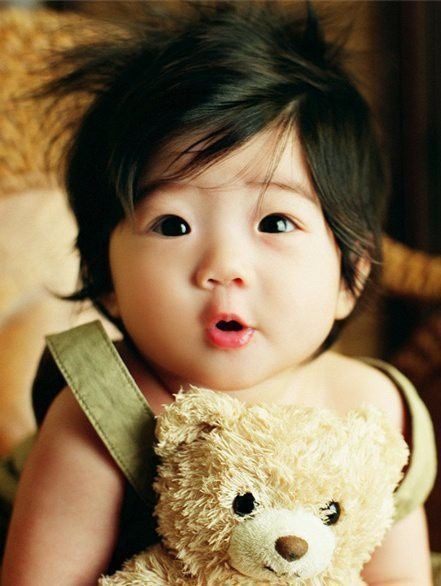
Hideyoshi
Hideyoshi means “outstanding good luck” or “excellent virtuous” and pronounced as HEE-DEH-YO-SHEE. Hideyoshi was the name of a 16th-century daimyo who unified Japan and attempted to conquer Korea.
Hiraku
Hiraku means “expand; open; support” and pronounced as HEE-RA-KOO.
Hiroaki
Hiroaki means “spreading brightness” or “wide and clear” and pronounced as HEE-RO-A-KEE.
Hirohito
Hirohito means “abundant benevolence” or “wide human” and pronounced as HEE-ro-hee-to.
Hiroki
Hiroki means “joy of wealth” or “great tree” and pronounced as HEE-ro-kee.
Hiromichi
Hiromichi means “wide street” or “rich road” and pronounced as hee-ro-mee-chee.
Hiromitsu
Hiromitsu means “extensive radiance” or “wide light” and pronounced as hee-ro-mee-tsoo.
Hironori
Hironori means “tolerant ruler” or “wide and rectangular” and pronounced as hee-roh-noh-ree.
Hiroshi
Hiroshi means “tolerant, generous” or “prosperous” and pronounced as HEE-RO-SHEE.
Hiroto
Hiroto means “great flying” and pronounced as HEE-RO-TO. Hiroto is a very popular Japanese boys’ name whose characters refer to the constellation Ursa Major.
Hiroyuki
Hiroyuki means “broad happiness” or “rich fortune” and pronounced as hee-ro-yoo-kee.
Hisahito
Hisahito means “virtuous” or “precious one” and pronounced as hee-sa-hee-to.
Hisao
Hisao means “life story” or “precious man”.
Hisashi
Hisashi means “a long time intention” or “celebrates joy” and pronounced as hee-sah-shee.
Hisato
Hisato means “one with a long life” or “skillful and smart” and pronounced as hee-sah-to.
Hisoki
Hisoki means “secretive” or “reserved” and pronounced as hee-so-kee.
Hitoshi
Hitoshi means “equal” or “benevolence” and pronounced as hee-to-shee.
Hyousuke
Hyousuke means “helpful soldier” or “panther; assistance” and pronounced approximately as HYOU-SKEH.
Ichiro
Ichiro is an alternative transcription of Ichirou which means “firstborn son”. Pronounced as EE-CHEE-RO.
Ichirou
Ichirou means “firstborn son” and pronounced as ee-chee-ro. Ichirou was traditionally a name given to the first son.
Isamu
Isamu means “bravery” or “gallant” and pronounced as ee-sah-moo.
Issey
Issey means “first star” or “firstborn” and pronounced approximately as ee-SEH.
Itsuki
Itsuki means “timber trees” and pronounced as EE-TSOO-KEE or EETS-KEE.
Jiro
Jiro means “second son” and pronounced as JEE-RO. Jiro was traditionally a name given to the second son.
Joben
Joben means “one who enjoys cleanliness” and pronounced as JO-BEHN.
Jomei
Jomei means “spreads light”.
Junichi
Junichi means “first son” or “the obedient one” and pronounced as joo-nee-chee.
Junichiro
Junichiro means “pure and cheerful one” and pronounced as joo-nee-chee-ro.
Junpei
Junpei means “pure” or “considerate” and pronounced as JOON-pei.
Juro
Juro is an alternative transcription of Juurou which means “the tenth son”. Pronounced as JOO-RO.
Jurou
Jurou is an alternative transcription of Juurou which means “the tenth son”. (Similar to Juro.) Pronounced as JOO-RO.
Juurou
Juurou means “the tenth son” and pronounced as JOO-RO. Juurou was traditionally a name given to the tenth son.
Kaemon
Kaemon means “joyful” or “right-handed” and pronounced as kah-e-mon. Kaemon is an old samurai name.
Kage
Kage means “shadow” and pronounced as KA-geh.
Kaito
Kaito means “to span the ocean” and pronounced as KAI-toh.
Kano
Kano means “one’s masculine power” or “capability” and pronounced as KAH-no. 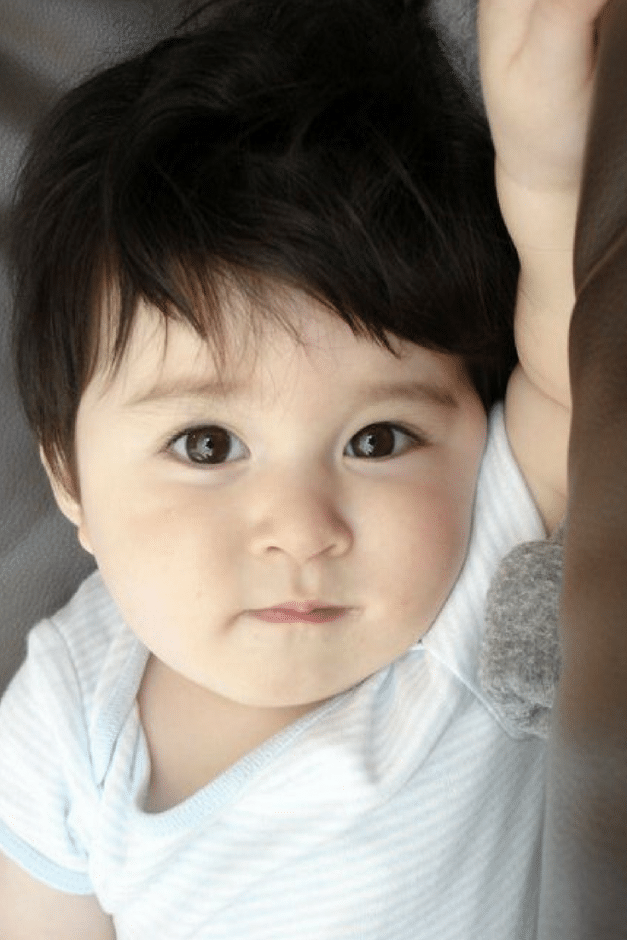
Katashi
Katashi means “firm” or “to aspire many” and pronounced as KA-TA-SHEE.
Katsu
Katsu means “victory” and pronounced as KA-TSOO.
Katsuo
Katsuo means “victorious man” and pronounced as KA-TSOO-O.
Katsuro
Katsuro is an alternative transcription of Katsurou which means “victorious son”. Pronounced as KA-TSOO-RO.
Katsurou
Katsurou means “victorious son” and pronounced as KA-TSOO-RO.
Kazuki
Kazuki means “one tree” or “bright and peaceful” and pronounced as KA-ZOO-KEE.
Kazuo
Kazuo means “firstborn” or “harmonious man” and pronounced as KA-ZOO-O.
Kazuya
Kazuya means “peaceful one” or “one call” and pronounced as KAH-zoo-yah.
Keiji
Keiji means “respect and two” or “road opening” and pronounced as KEI-jee.
Keitaro
Keitaro means “respectful plump son” or “blessed and thick man” and pronounced as KEI-tah-ro.
Ken’ichi
Ken’ichi means “the healthy and strong one” or “study; sharpen; one” and pronounced as KEI-EE-CHEE.
Kenji
Kenji means “second son” or “strong and vigorous” and pronounced as KEHN-JEE.
Kenshin
Kenshin means “true sword” or “humble and trustworthy” and pronounced as KEHN-sheen.
Kenta
Kenta means “healthy and plump” or “big fist” and pronounced as KEHN-TA.
Kentaro
Kentaro means “big man” or “healthy and thick man” and pronounced as KEHN-TA-RO.
Kenzo
Kenzo means “wise and three” or “strong and healthy” and pronounced as KEHN-ZO. Kenzo is a common Japanese name with several creative bearers: the single-named fashion designer, prizewinning architect Kenzo Takada, and painter Kenzo Okada.
Kenzou
Kenzou is an alternative transcription of Kenzo which means “strong and healthy” or “wise and three”. Pronounced as KEHN-ZO.
Kichiro
Kichiro is an alternative transcription of Kichirou which means “lucky son”. Pronounced as KEE-CHEE-RO.
Kichirou
Kichirou means “lucky son” and pronounced as KEE-CHEE-RO.
Kioshi
Kioshi means “silent” and pronounced as KEE-O-SHEE.
Kiyoshi
Kiyoshi means “pure” or “sacred” and pronounced as KEE-YO-SHEE.
Koda
Koda means “last born” or “the ally” and pronounced as KOH-dah.
Koichi
Koichi means “happiness one” or “one tiger” and pronounced as KOH-ee-chee.
Koji
Koji means “little one” or “abundance and two” and pronounced as KOH-JEE.
Kouichi
Kouichi means “happiness and one” or “wide city” and pronounced as KOU-ee-chee.
Kouki
Kouki means “vast and strong” or “happy and bright” and pronounced as KO-KEE.
Kousuke
Kousuke means “inlet and clear” or “skillful friend” and pronounced as KOHS-KEH.
Koya
Koya means “clever and quick witted leader” and pronounced as KOH-yah.
Kurou
Kurou means “expert” or “the ninth son” and pronounced as KOO-RO. Kurou was traditionally a name given to the ninth son.
Kyosuke
Kyosuke means “respectful” or “sound and dance” and pronounced as KYOHS-KEH.
Manzo
Manzo means “third son” or “as strong as 10” and pronounced as MAHN-zo.
Mareo
Mareo means “uncommon” and pronounced as mah-RE-o.
Maro
Maro means “myself” and pronounced as MAH-ro.
Masa
Masa means “true sand” or “refinement” and pronounced as MAH-sa.
Masakazu
Masakazu means “superior and calm” or “benevolence and one” and pronounced as mah-sah-kah-zoo.
Masao
Masao means “proper man” or “refined male” and pronounced as MAH-sahw.
Masaru
Masaru means “victory” or “excellence” and pronounced as MA-SA-ROO.
Masato
Masato means “justice” or “brave human” and pronounced as mah-sah-to.
Michiaki
Michiaki means “autumn road” or “sensible road” and pronounced as mee-chee-ah-kee.
Naoyuki
Naoyuki means “honesty and happiness” or “straightforward and modest” and pronounced as nah-o-yuu-kee.
Naozumi
Naozumi means “honesty and innocence” or “precious and pure” and pronounced as Nah-oh-zoo-mee.
Natsuo
Natsuo means “summer life” or “born in summer” and pronounced as nah-tsuu-o.
Noboru
Noboru means “climber” or “to go back” and pronounced as NO-BO-ROO.
Nobu
Nobu means “trust” or “sincere” and pronounced as NO-BOO.
Noburu
Noburu means “extend; stretch” and pronounced as NO-BOO-ROO. 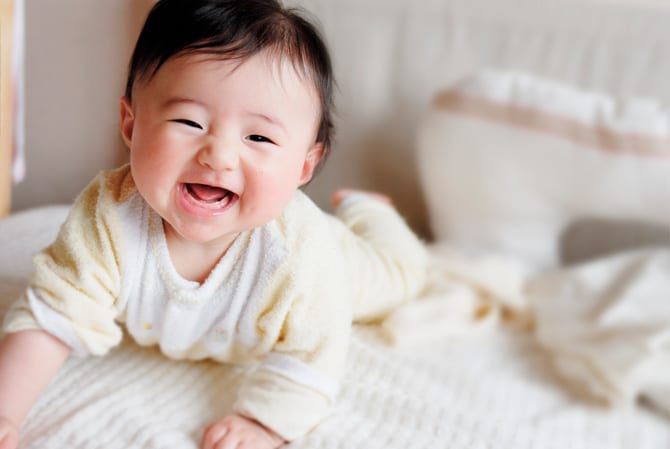
Nobuyuki
Nobuyuki means “confident of good fortune” or “trustworthy and helpful” and pronounced as NO-BOO-YOO-KEE.
Noritaka
Noritaka means “law and filial piety” or “high virtue” and pronounced as NO-REE-TAH-KA.
Osamu
Osamu means “discipline, study” or “ruler” and pronounced as O-SA-MOO.
Ozuru
Ozuru means “big stork” and pronounced as O-ZOO-ROO.
Raden
Raden is a variation of Raiden which means “thunder and lightning”. Pronounced as RA-dehn.
Raiden
Raiden means “thunder and lightning” and pronounced as RAI-dehn. Raiden is a regional epithet of the Japanese god, Raijin.
Raijin
Raijin means “spirit of thunder” or “rely and benevolence” and pronounced as RAI-JEEN. Raijin is the Japanese god of thunder.
Reiji
Reiji means “courteous child” or “clever history” and pronounced as REI-jee.
Renzo
Renzo means “third son” or “third link” and pronounced as REHN-zo.
Riki
Riki means “power and strength” or “rare gallant” and pronounced as REE-kee.
Ringo
Ringo means “apple” or “five rings” and pronounced as RIN-go.
Rokuro
Rokuro is an alternative transcription of Rokurou which means “the sixth son”. Pronounced as RO-KOO-RO.
Rokurou
Rokurou means “the sixth son” and pronounced as RO-KOO-RO. Rokurou was traditionally a name given to the sixth son.
Ryoichi
Ryoichi is an alternative transcription of Ryouichi which means “clear one” or “one dragon”. Pronounced as RYO-EE-CHEE.
Ryota
Ryota is an alternative transcription of Ryouta which means “splendidly stout” or “good and big”. Pronounced as RYO-TA.
Ryoto
Ryoto means “like a dragon” or “refreshing person” and pronounced as RYO-TO.
Ryouichi
Ryouichi means “clear one” or “one dragon” and pronounced as RYO-EE-CHEE.
Ryouta
Ryouta means “splendidly stout” or “good and big” and pronounced as RYO-TA.
Ryu
Ryu is an alternative transcription of Ryuu which means “dragon” or “vigor”. Pronounced as RYOO.
Ryuu
Ryuu means “dragon” or “vigor” and pronounced as RYOO.
Ryuunosuke
Ryuunosuke means “dragon shell” or “vigor; dictates; help someone” and pronounced as RYOO-NO-SKEH.
Ryuusei
Ryuusei means “blue dragon” or “vigor and prosper” and pronounced as RYOO-SEI.
Saburo
Saburo is an alternative transcription of Saburou which means “third born son” or “three towers”. Pronounced as SA-BOO-RO.
Saburou
Saburou means “third born son” or “three towers” and pronounced as SA-BOO-RO. Saburou was traditionally a name given to the third son.
Sachihiro
Sachihiro means “broad happiness” and pronounced as SA-CHEE-HE-RO.
Samaru
Samaru is an alternative transcription of Samuel which means “God has heard”. Pronounced as SA-MA-ROO.
Samuru
Samuru means “He whose name is God” and pronounced as SA-MOO-ROO.
Sanjiro
Sanjiro means “admired; praised” and pronounced as SAHN-JEE-RO.
Sasuke
Sasuke means “helper” or “smart assistant” and pronounced as SAHS-KEH. Sasuke, is most familiar in a Japanese context from Sasuke Uchiha, a character in the Naruto anime.
Seiichi
Seiichi means “sincere one” or “one star” and pronounced as sei-ee-chee.
Seiji
Seiji means “lawful and just” and pronounced as SEI-jee.
Seto
Seto means “shallow human” or “white” and pronounced as SEH-toh.
Shichiro
Shichiro is an alternative transcription of Shichirou which means “the seventh son”. Pronounced as SHEE-CHEE-RO.
Shichirou
Shichirou means “the seventh son” and pronounced as SHEE-CHEE-RO. Shichirou was traditionally a name given to the seventh son.
Shin’ichi
Shin’ichi means “a genuine one” or “new city” and pronounced as SHEE-EE-CHEE.
Shinjiro
Shinjiro means “pure and true person” or “true samurai” and pronounced as SHEEN-JEE-RO.
Shinta
Shinta means “a person who develops things” or “gently move on” and pronounced as SHEEN-tah.
Shiro
Shiro is an alternative transcription of Shirou which means “fourth-born son”. Pronounced as SHEE-RO.
Shirou
Shirou means “fourth-born son” and pronounced as SHEE-RO. Shirou was traditionally a name given to the fourth son.
Sho
Sho is an alternative transcription of Shou which means “thriving” or “soar, glide”. Pronounced as SHO.
Shota
Shota is an alternative transcription of Shouta which means “heavy flight”. Pronounced as SHO-TA.
Shou
Shou means “thriving” or “soar, glide” and pronounced as SHO.
Shouhei
Shouhei means “soaring peacefully” and pronounced as SHO-HEH.
Shouta
Shouta means “heavy flight” and pronounced as SHO-TA.
Shunsuke
Shunsuke means “sagacious help” and pronounced as SHOON-SKEH.
Shusuke
Shusuke means “to learn meditation” and pronounced as SHOOS-KEH.
Sota
Sota is an alternative transcription of Souta which means “quick and thick” or “sound of the wind; big”. Pronounced as SO-TA.
Souji
Souji means “general director” or “rule all” and pronounced as SOU-JEE.
Souma
Souma means “genuine sound of the wind” or “moonlight” and pronounced as SO-MA.
Souta
Souta means “quick and thick” or “sound of the wind; big” and pronounced as SO-TA.
Suguru
Suguru means “eminent” or “outstanding” and pronounced as SOO-GOO-ṘOO.
Susumu
Susumu means “make progress” or “to move towards a dream” and pronounced as SOO-SOO-MOO.
Tadaaki
Tadaaki means “faithful light” or “sincere and disciplined” and pronounced as tah-dah-kee.
Tadashi
Tadashi means “faithful servant” or “love of peace” and pronounced as tah-dah-shee.
Taemon
Taemon means “well-behaved person” or “one with good morals”.
Taichi
Taichi means “big one” or “resistance towards knowledge” and pronounced as TAI-CHEE.
Taiki
Taiki means “big tree” or “big and bright” and pronounced as TAI-KEE.
Taji
Taji means “silver and yellow color” and pronounced as TA-JEE.
Takahiro
Takahiro means “widespread nobility” or “greatly valuable” and pronounced as TA-KA-HEE-RO.
Takai
Takai means “next world” and pronounced as TAH-KAI.
Takashi
Takashi means “noble aspiration” or “precious samurai” and pronounced as TA-KA-SHEE.
Takato
Takato means “precious measure of exaltation” or “high benevolence” and pronounced as TAH-KA-TO.
Takaya
Takaya means “respectful one” or “strong start” and pronounced as TAH-KA-YA.
Takehiko
Takehiko means “a brave and respectable man” or “bamboo prince” and pronounced as TA-KEH-HEE-KO.
Takeo
Takeo means “strong as bamboo” or “brave warrior” and pronounced as TAH-KE-O.
Takeshi
Takeshi means “strong as bamboo” or “a strong and healthy martial” and pronounced as TA-KEH-SHEE.
Taku
Taku means “skillful” or “young” and pronounced as TA-KOO.
Takuma
Takuma means “open truth” or “true skill” and pronounced as TA-KOO-MA.
Takumi
Takumi means “artisan” or “open sea” and pronounced as TA-KOO-MEE.
Takuya
Takuya means “eminent one” or “beak of a bird; progress” and pronounced as TA-KOO-YA.
Tamaki
Tamaki means “a boy who is a true gem” or “rare ball” and pronounced as TA-MA-KEE.
Taro
Taro is an alternative transcription of Tarou which means “big son” or “thick spine”. Pronounced as TA-RO.
Tarou
Tarou means “big son” or “thick spine” and pronounced as TA-RO.
Tatsuya
Tatsuya means “sign of the dragon” or “accomplished one” and pronounced as TAH-TSOO-YAH.
Teijo
Teijo means “one who is righteous”.
Tetsuya
Tetsuya means “arrow of philosophy” or “thorough progress” and pronounced as TEH-TSOO-YAH.
Tohru
Tohru means “a transparent person” and pronounced as TOH-ROO.
Tomiichi
Tomiichi means “one who is wealthy” or “wealthy city” and pronounced as TOH-MEE-CHEE.
Tomohiro
Tomohiro means “broad wisdom” or “smart and big” and pronounced as TOH-MO-HEE-RO.
Tomoya
Tomoya means “wise one” or “arrow of knowledge” and pronounced as TOH-MO-YAH.
Toshiro
Toshiro means “talented person” or “sharp man” and pronounced as TOH-SHEE-RO. 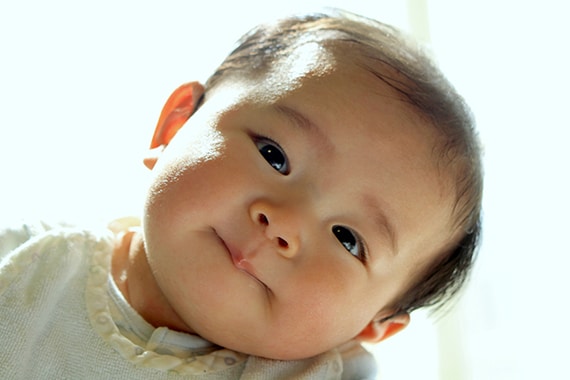
Tsukiya
Tsukiya means “white moon” or “palm of the moon” and pronounced as TSOO-KEE-YAH.
Yamato
Yamato means “great harmony” or “ancient Japan” and pronounced as YA-MA-TO. Yamato can also refer to the Yamato period in Japanese history, which lasted into the 8th century.
Yoshiro
Yoshiro is an alternative transcription of Yoshirou which means “righteous son” or “happy individual”. Pronounced as YO-SHEE-RO.
Yoshirou
Yoshirou means “righteous son” or “happy individual” and pronounced as YO-SHEE-RO.
Youta
Youta means “thick sunshine” or “gentle sun” and pronounced as YO-TA.
Yukio
Yukio means “snow boy” and pronounced as YOO-kee-o. Yukio, in Japanese culture, is a name that suggests a sense of independence and is one of the popular names for December babies.
Yuudai
Yuudai means “great hero” or “a gentle man” and pronounced as YOO-DAI.
Yuuma
Yuuma means “genuine excellence” or “permanent truth” and pronounced as YOO-MA.
Yuuta
Yuuta means “calm and thick” or “evening song” and pronounced as YOO-ta.
Yuuto
Yuuto means “courageous and smart” or “tender” and pronounced as YOO-TO.
Japanese Girl Names
Ahmya
Ahmya means “black rain” and pronounced as AHM-YAH. 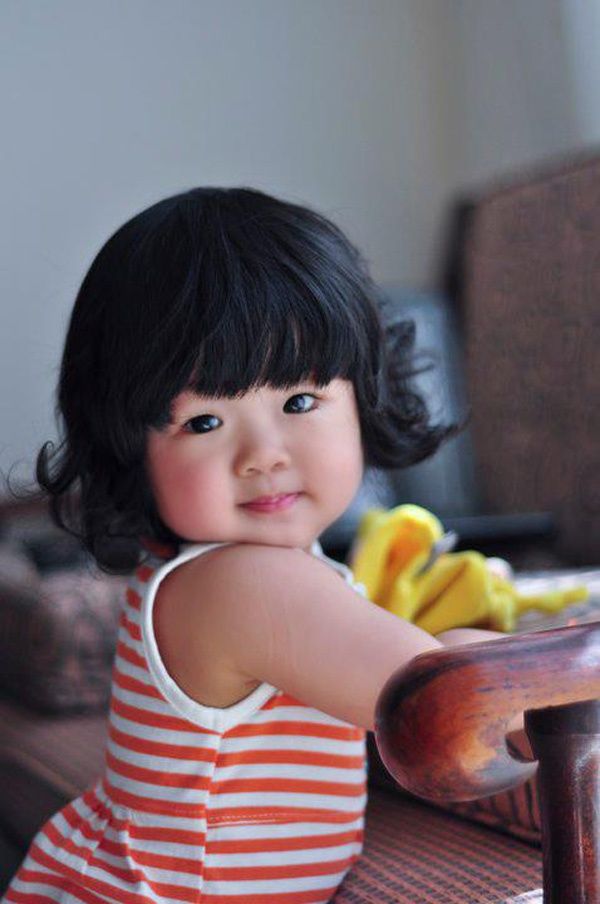
Ai
Ai means “loved” or “indigo” and pronounced as AI.
Aia
Aia means “woven silk” or “indigo love” and pronounced as AI-AH.
Aika
Aika means “love song” or “calm incense” and pronounced as AI-KAH.
Aiko
Aiko means “beloved child” or “little love” and pronounced as AI-KOH.
Aimi
Aimi means “beautiful love” or “sincere love” and pronounced as AI-MEE.
Aina
Aina means “calm beauty” or “beautiful summer” and pronounced as AI-NAH.
Airi
Airi means “beloved jasmine” or “lovely smile” and pronounced as AI-REE.
Akane
Akane means “red dye” or “vivid light” and pronounced as A-KA-NEH.
Akari
Akari means “brightness” or “red village” and pronounced as A-KA-REE.
Akemi
Akemi means “beautifully bright” or “bright heart” and pronounced as A-KEH-MEE.
Amaya
Amaya means “night rain” and pronounced as A-MAH-YAH.
Ame
Ame means “rain” and pronounced as AH-MEH.
Ami
Ami means “beautiful Asia” or “beautiful hope” and pronounced as A-MEE.
Aneko
Aneko means “older sister” and pronounced as AH-NEH-KO.
Asami
Asami means “morning beauty” or “beautiful linen” and pronounced as AH-SAH-MEE.
Asuga
Asuga means “swift like a wind” and pronounced as AH-SOO-GAH.
Atsuko
Atsuko means “child of profound emotions” or “sincere child” and pronounced as A-TSOO-KO.
Aya
Aya means “color” or “woven silk” and pronounced as A-YA.
Ayaka
Ayaka means “colorful fragrance” or “colorful flower” and pronounced as A-YA-KA.
Ayako
Ayako means “colorful child” or “thankful child” and pronounced as A-YA-KO.
Ayame
Ayame means “iris” or “lovely princess” and pronounced as A-YA-MEH.
Ayane
Ayane means “colorful sound” or “blessed flower” and pronounced as A-YA-NEH.
Ayano
Ayano means “from love” or “colorful field” and pronounced as A-YA-NO.
Ayeka
Ayeka means “quick and analytical mind” or “delicate” and pronounced as A-YEH-KA.
Azami
Azami means “thistle flower” or “heart” and pronounced as ah-zah-mee.
Chiaki
Chiaki means “thousand autumns” or “thousand sun” and pronounced as chee-ah-kee.
Chihiro
Chihiro means “thousand questions” and pronounced as CHEE-HEE-RO. Chihiro is a popular Japanese name used for the young heroine of the international famous animated film, “Spirited Away”.
Chika
Chika means “near” or “wise and beautiful” and pronounced as CHEE-KA.
Chikako
Chikako means “delightful child” or “near; child” and pronounced as CHEE-KA-KO.
Chinatsu
Chinatsu means “thousand summers” or “thousand; beautiful; capital” and pronounced as CHEE-NA-TSOO.
Chiyo
Chiyo means “thousand generations” or “eternal” and pronounced as CHEE-YO.
Chiyoko
Chiyoko means “child of forever” or “a thousand generations’ child” and pronounced as CHEE-YO-KO.
Chizue
Chizue means “endurance” or “blessed long life” and pronounced as CHEE-ZOO-EH.
Cho
Cho is an alternative transcription of Chou which means “born at dawn” or “butterfly”. Pronounced as CHO.
Chou
Chou means “born at dawn” or “butterfly” and pronounced as CHO.
Chouko
Chouko means “butterfly child” or “the length; child” and pronounced as CHO-KO.
Chuya
Chuya means “pure and clear like water” and pronounced as CHUU-YA.
Dai
Dai means “to shine” or “great one” and pronounced as DAI.
Emi
Emi means “beautiful painting” or “laughter” and pronounced as EH-MEE.
Emiko
Emiko means “prosperous and beautiful child” or “blessed and sacred child” and pronounced as EH-MEE-KO.
Etsuko
Etsuko means “joyful child” or “blessed moon child” and pronounced as EH-TSOO-KO.
Fumiko
Fumiko means “child of beautiful wealth” or “academic” and pronounced as FOO-MEE-KO. 
Fuyuko
Fuyuko means “winter child” or “wealthy child” and pronounced as FOO-YOO-KO.
Gen
Gen means “spring” or “the origin; source” and pronounced as GEHN.
Haia
Haia means “nimble; quick” and pronounced approximately as HAH-YAH.
Hana
Hana means “flower; blossom” and pronounced as HA-NA.
Hanae
Hanae means “flower; picture” or “leaf, fruit trees; picture” and pronounced as HA-NA-EH.
Hanako
Hanako means “flower child” or “maple child” and pronounced as HA-NA-KO. Hanako, in Japanese urban legend, is the name of the ghost of a little girl who haunts school bathrooms, who sometimes answers if you call her name.
Hanami
Hanami means “beautiful flower” or “attractive flower” and pronounced as HA-NAH-MEE.
Haruhi
Haruhi means “spring day” or “sunlight” and pronounced as HA-ROO-HEE.
Haruko
Haruko means “born in spring” or “sunshine” and pronounced as HA-ROO-KO. Haruko is a name possibly for a Japanese or Japanese-American child born in April or May.
Harumi
Harumi means “springtime beauty” or “warm heart” and pronounced as HAH-ROO-MEE.
Haruna
Haruna means “springtime vegetables” or “beautiful sun” and pronounced as HA-ROO-NA.
Hatsuko
Hatsuko means “first born child” or “wave; harbor; child” and pronounced as HAH-TSOO-KO.
Hatsumomo
Hatsumomo means “first born peach” and pronounced as HA-TSOO-MO-MO.
Hina
Hina means “sun; day; greens; vegetables” or “beautiful summer” and pronounced as HEE-NAH.
Hiroko
Hiroko means “generous child” or “prosperous child” and pronounced as HEE-RO-KO.
Hisa
Hisa means “long lasting” or “vivid light” and pronounced as HEE-SAH.
Hisano
Hisano means “from a long story” or “precious field” and pronounced as HEE-SAH-NO.
Hitomi
Hitomi means “pupil of the eye” or “beautiful history” and pronounced as HEE-TO-MEE.
Honoka
Honoka means “harmonious flower” or “faint” and pronounced as HO-NO-KA.
Hoshiko
Hoshiko means “star child” or “greedy child” and pronounced as HO-SHEE-KO.
Hotaru
Hotaru means “firefly” or “bright flow” and pronounced as HO-TA-ROO.
Ima
Ima means “now” and pronounced as EE-mah.
Ino
Ino means “wild boar” or “plum one” and pronounced as EE-no. Ino is most familiar in a Japanese context from Ino Yamanaka, a character in the Naruto anime.
Ishi
Ishi means “stone” and pronounced as EE-SHEE.
Jin
Jin means “tenderness, gentleness” or “ultimate excellence” and pronounced as JEEN.
Junko
Junko means “sincere child” or “pure child” and pronounced as JOON-KO.
Kasumi
Kasumi means “mist” or “serene summer” and pronounced as KA-SOO-MEE.
Kana
Kana means “powerful” or “beautiful fruit” and pronounced as KAH-na.
Kanon
Kanon means “flower; sound” or “warm heart” and pronounced as KA-NON.
Kaori
Kaori means “smells like a beautiful flower” or “weaving” and pronounced as KAHW-REE.
Karen
Karen means “flower; lotus; water lily” or “deep red flame” and pronounced as KA-REHN.
Kasumi
Kasumi means “from the mist” or “calm, serene, beauty” and pronounced as KA-SOO-MEE.
Kaya
Kaya means “yew” or “thatched” and pronounced as KA-YAH.
Kayo
Kayo means “beautiful generation” or “the world’s song” and pronounced as KAH-YO.
Kazane
Kazane means “the sound the wind makes” or “incense of the heart” and pronounced as KA-ZAH-NEH.
Kazuko
Kazuko means “obedient child” or “a child with long life” and pronounced as KA-ZOO-KO.
Keiko
Keiko means “blessed child” or “happy child” and pronounced as KEI-KOHW.
Keina
Keina means “beautiful fire fly” or “blessed name” and pronounced as KEI-NAH.
Kiaria
Kiaria means “fortunate” or “beautiful”.
Kiku
Kiku means “chrysanthemum” or “deep red tree” and pronounced as KEE-KOO.
Kimi
Kimi means “righteous” or “she who is without equal” and pronounced as KI-MEE.
Kimika
Kimika means “beautiful emperor of Japan” or “benevolent flower” and pronounced as KI-MEE-KA.
Kimiko
Kimiko means “happy and beautiful child” or “noble child” and pronounced as KEE-ME-KO.
Kioka
Kioka means “happy child” or “precious; cord; incense” and pronounced as KEE-O-KAH. 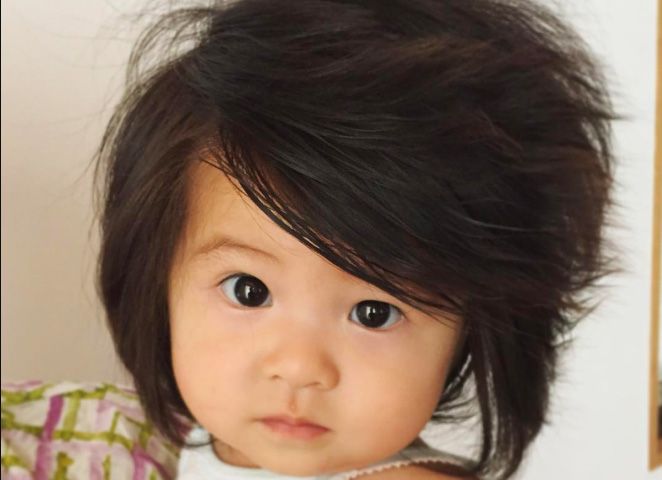
Kioko
Kioko means “joyful and lucky cherry blossoms” or “a child that’s hopeful in the inside” and pronounced as KEE-O-KOH.
Kirika
Kirika means “natural beauty” or “precious and interesting flower” and pronounced as KEE-REE-KAH.
Kiyoko
Kiyoko means “pristine child” or “sacred child” and pronounced as KEE-YO-KO.
Koharu
Koharu means “small flower” or “heart; spring” and pronounced as KO-HA-ROO.
Kokoro
Kokoro means “heart, mind, soul” or “sound of the heart” and pronounced as KO-KO-RO.
Kotone
Kotone means “sound of the koto” or “koto; child” and pronounced as KO-TO-NEH. Koto refers to a type of a traditional Japanese musical instrument similar to a harp.
Kozue
Kozue means “treetop” or “target” and pronounced as KO-ZOO-EH.
Kumi
Kumi means “forever beautiful” or “beautiful sky” and pronounced as KOO-mee.
Kumiko
Kumiko means “perpetually beautiful child” or “long time; progress; child” and pronounced as KOO-MEE-KO.
Kuniko
Kuniko means “child born in the country” or “aromatic child” and pronounced as KOO-NEE-KO.
Kyoko
Kyoko means “mirror” or “Kyoto child” and pronounced as KYOU-KO.
Kyomi
Kyomi means “pure and beautiful” and pronounced as KYOU-MEE.
Kyoto
Kyoto is a Japanese place-name and pronounced as KYOU-TOH.
Machiko
Machiko means “fortunate child” or “town child” and pronounced as MAH-CHEE-KO.
Maeko
Maeko means “truthful child” or “true blessed child” and pronounced as mah-e-ko.
Maemi
Maemi means “smile of truth” or “ten thousand; branch; kindness” and pronounced as ma-eh-mee.
Maho
Maho means “real sail” or “true friend” and pronounced as mah-ho.
Mai
Mai means “dance” or “genuine love” and pronounced as MAI.
Maiko
Maiko means “a child that loves to dance” or “a child who loves strawberries” and pronounced as MAI-KO.
Maiya
Maiya means “dance progress” or “rice valley” and pronounced as MAI-YAH.
Makiko
Makiko means “true and joyful child” or “a joyful dancing child” and pronounced as mah-kee-ko.
Mako
Mako means “truthful child” or “dancing tiger” and pronounced as MAH-ko.
Mameha
Mameha means “dance; sprout; leaf” and pronounced as MA-ME-HA.
Mami
Mami means “polished pearl” or “genuinely beautiful” and pronounced as MA-MEE.
Mamiko
Mamiko means “daughter of the sea” or “genuinely beautiful child” and pronounced as MA-MEE-KO.
Manami
Manami means “beautiful love” or “mature love” and pronounced as MA-NA-MEE.
Mao
Mao means “cherry blossom dance” or “true and calm” and pronounced as MAHW.
Mari
Mari means “ball” or “genuine reason” and pronounced as MA-REE.
Mariko
Mariko means “round child” or “ball; incense” and pronounced as MA-REE-KO.
Masae
Masae means “blessed with elegance” or “elegant love” and pronounced as MA-SA-EH.
Masako
Masako means “elegant child” or “truthful child” and pronounced as mah-sah-koh.
Masumi
Masumi means “true beauty” or “clarifies the truth” and pronounced as mah-soo-mee.
Masuyo
Masuyo means “profit; benefit; world” or “full; long life; generation” and pronounced as MA-SOO-YO.
Mayu
Mayu means “gentle truth” or “gentle evening” and pronounced as MA-YOO.
Mayuko
Mayuko means “a child of gentle truth” or “a child that’s a true friend” and pronounced as MA-YOO-KO.
Mayumi
Mayumi means “a truly beautiful reason” or “love bow” and pronounced as MA-YOO-MEE.
Megumi
Megumi means “blessed beauty” or “blessed water” and pronounced as MEH-GOO-MEE.
Mei
Mei means “life” or “a good woman” and pronounced as MAY.
Michiko
Michiko means “the righteous way” or “beautiful and wise child” and pronounced as MEE-CHEE-KO. Michiko was the name of the first commoner to become empress of Japan and to New York Times book empress Michiko Kakutani.
Midori
Midori means “green” and pronounced as MEE-DO-REE.
Mie
Mie means “beautiful and blessed” or “prosperity” and pronounced as MEE-EH.
Mieko
Mieko means “child of prosperity” or “beautiful and blessed child” and pronounced as MEE-eh-ko.
Miho
Miho means “beautiful grain” or “step of hope” and pronounced as MEE-HO.
Mihoko
Mihoko means “child of protected beauty” or “beautiful star child” and pronounced as MEE-HO-KO. 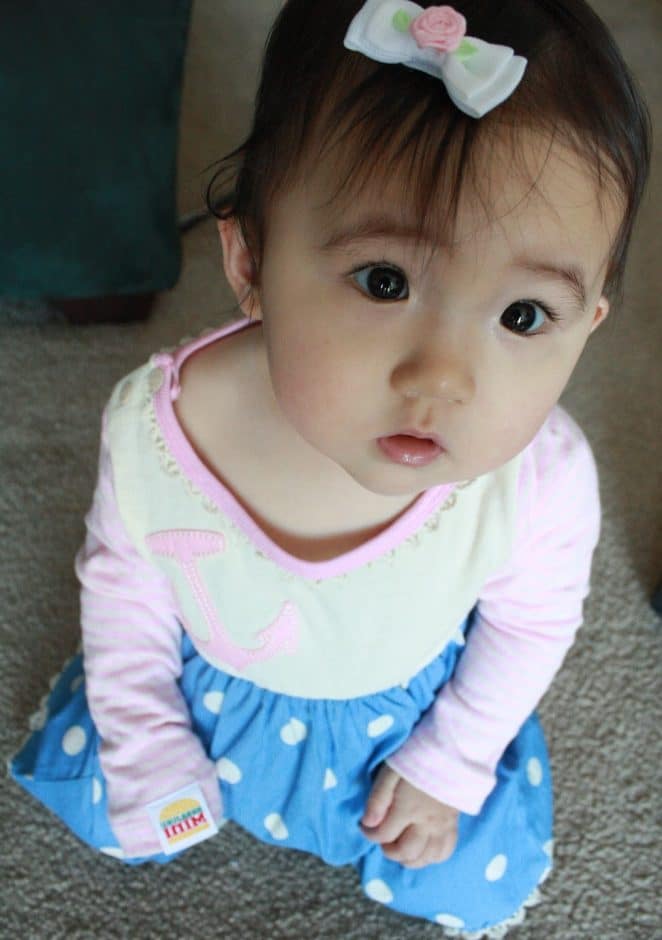
Mika
Mika means “beautiful fragrance” or “the moon of the third night (of the old lunar month)” and pronounced as MEE-KA.
Mikan
Mikan means “orange” or “beautiful citrus” and pronounced as MEE-kahn.
Mikasa
Mikasa means “to resolve” or “beautiful shade” and pronounced as MEE-KA-SAH.
Miku
Miku means “beautiful sky” or “attractive deep red color” and pronounced as MEE-KOO.
Minako
Minako means “beautiful child” or “love and hope” and pronounced as MEE-NA-KO.
Minami
Minami means “south” or “beautiful wave” and pronounced as MEE-NA-MEE.
Mio
Mio means “beautiful cherry blossom” or “triple cord” and pronounced as MEE-O.
Mirai
Mirai means “future” or “hope and love” and pronounced as MEE-RAI.
Misa
Misa means “beautiful bud” or “beautiful sand” and pronounced as MEE-SAH.
Misaki
Misaki means “beautiful blossom” or “beautiful princess” and pronounced as MEE-SA-KEE.
Misako
Misako means “beautiful and helpful child” or “manipulative child” and pronounced as MEE-SA-KO.
Mitsu
Mitsu means “shiny reflection” or “honey” and pronounced as MEE-TSOO.
Mitsue
Mitsue means “blessed light” or “shining branch” and pronounced as MEE-TSOO-EH.
Mitsuki
Mitsuki means “beautiful moon” or “honey princess” and pronounced as MEE-TSOO-KEE.
Mitsuko
Mitsuko means “shining child” or “beauty; crane; child” and pronounced as MEE-TSOO-KO.
Miu
Miu means “beautiful feathers” or “superior beauty” and pronounced as MEE-OO.
Miwa
Miwa means “three rings” or “heartfelt story” and pronounced as MEE-WA.
Miya
Miya means “beautiful temple” or “love” and pronounced as MEE-YA.
Miyako
Miyako means “beautiful night child” or “beautiful capital” and pronounced as MEE-YA-KO.
Miyu
Miyu means “superior beauty” or “excellent result” and pronounced as MEE-YOO.
Mizuki
Mizuki means “beautiful moon” or “auspicious hope” and pronounced as MEE-ZOO-KEE.
Moe
Moe means “bud, sprout” or “loved and blessed” and pronounced as MO-EH.
Momiji
Momiji means “maple tree” or “reddening of leaves” and pronounced as mo-mee-jee.
Momoka
Momoka means “thousand flowers” or “aromatic peach” and pronounced as MO-MO-KA.
Momoko
Momoko means “peach child” or “a hundred incense” and pronounced as MO-MO-KO.
Morika
Morika means “fragrance of the forest” or “song of protection” and pronounced as MO-REE-KAH.
Moriko
Moriko means “child of the forest” or “hundred; crystal; child” and pronounced as MO-REE-KO.
Nagi
Nagi means “calm” or “kite” and pronounced as NA-GEE.
Namie
Namie means “beautiful and blessed fruit trees” or “seven blessed ocean” and pronounced as NAH-mee-eh.
Namiko
Namiko means “child of the waves” or “beautiful child from the south” and pronounced as NA-MEE-KO.
Nana
Nana means “seven” or “calm and green” and pronounced as NA-NA.
Nanako
Nanako means “the seventh child” or “calm; green; child” and pronounced as NA-NA-KO.
Nanami
Nanami means “seven seas” or “beautiful vegetables” and pronounced as NA-NA-MEE.
Naoko
Naoko means “obedient child” or “precious child” and pronounced as NA-O-KO.
Nara
Nara means “oak” or “happy” and is also a a Japanese place-name. Pronounced as NAH-RA.
Nariko
Nariko means “gentle child” or “a child who achieves” and pronounced as NA-REE-KO.
Natsuki
Natsuki means “summer and hope” or “happy summer” and pronounced as NA-TSOO-KEE.
Natsuko
Natsuko means “summer child” or “beautiful moon” and pronounced as NA-TSOO-KO.
Natsumi
Natsumi means “summer beauty” or “hopeful summer” and pronounced as NA-TSOO-MEE.
Noa
Noa means “gentle field” or “field of love” and pronounced as NO-A.
Nomi
Nomi means “beautiful; pleasant; delightful” and pronounced as NO-MEE.
Noriko
Noriko means “lawful child” or “doctrine” and pronounced as NO-REE-KO.
Norita
Norita means “thick law” or “decree” and pronounced as NO-REE-TA.
Nozomi
Nozomi means “rare” or “hope” and pronounced as NO-ZOH-MEE.
Nyoko
Nyoko means “treasured child” or “gem”.
Orino
Orino means “worker’s field” and pronounced as O-REE-NO.
Reiko
Reiko means “pretty child” or “child of thankfulness” and pronounced as RAY-ko.
Reina
Reina means “a beautiful tinkling sound” or “wise and beautiful” and pronounced as RAY-NA.
Rie
Rie means “beautiful and blessed” or “plum branch” and pronounced as REE-EH.
Rieko
Rieko means “blessed benefit child” or “child of a blessed village” and pronounced as REE-EH-KO.
Rikka
Rikka means “six flowers” or “crystal flower” and pronounced as reek-kah. 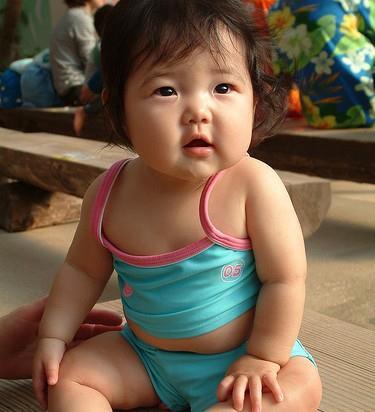
Rikku
Rikku means “foreign guardian” or “land, continent” and pronounced as reek-koo. Rikku is familiar in the west as the name of one of the lead characters of the “Final Fantasy” video game series.
Riko
Riko means “white jasmine child” or “beautiful lake” and pronounced as REE-KO.
Rina
Rina means “vegetable village” or “summer pear” and pronounced as REE-NA.
Rini
Rini means “crystal red” or “little bunny” and pronounced as REE-NEE.
Rio
Rio means “place of the cherry blossoms” and pronounced as REE-O.
Rumi
Rumi means “beautiful lapis lazuli” or “beautiful flow” and pronounced as ROO-mee.
Ruri
Ruri means “lapis lazuli” or “emerald” and pronounced as ROO-REE. Naming babies after precious gems as a protection against evil spirits is an ancient Japanese tradition.
Ryoko
Ryoko means “excellent child” or “understanding child” and pronounced as RYO-KOH.
Sachiko
Sachiko means “child of joy” or “child of good fortune” and pronounced as SA-CHEE-KO. Sachiko was one of the first Japanese names familiar to Americans when it was used in the 1950s by actress Shirley Maclaine for her daughter.
Sada
Sada means “established” or “true” and pronounced as SAH-DA.
Sadako
Sadako means “established child” or “child of integrity” and pronounced as sah-dah-koh. Sadako is most famous for being the name of a ghost in the horror movie, Ring.
Saeko
Saeko means “a serene child” or “colorful child” and pronounced as sah-eh-koh.
Sakai
Sakai means “prosperity” or “fortunate support” and pronounced as SAH-KAI.
Saki
Saki means “blooming hope” or “purple” and pronounced as SAH-KEE.
Sakiko
Sakiko means “blossom princess child” or “a child of blooming hope” and pronounced as SAH-KEE-KO.
Sakura
Sakura means “cherry blossom” and pronounced as SAH-KOO-RA.
Sakurako
Sakurako means “cherry blossom child” or “small cherry blossoms” and pronounced as SA-KOO-RA-KO.
Saori
Saori means “color of sand” or “woven colorfully” and pronounced as SAHW-REE.
Satoko
Satoko means “wise child” or “blessed child” and pronounced as SA-TO-KO.
Satomi
Satomi means “wise beauty” or “beautiful village” and pronounced as SA-TO-MEE.
Satsuki
Satsuki means “fifth month” or “hopeful shore”.
Sayaka
Sayaka means “brilliant and clear” or “colorful incense”.
Sayuri
Sayuri means “small lily” or “colorful village”.
Seika
Seika means “starry sky” or “pure summer”.
Setsuko
Setsuko means “child of the season” or “melodic child” and pronounced as SE-TSOO-KO.
Shigeko
Shigeko means “luxuriant child” or “delighted child”.
Shika
Shika means “gentle deer” or “lovely purple”.
Shiko
Shiko means “stone”.
Shinon
Shinon is a flower name. Shinon in English is the flower, Aster Tataricus which means “remembrance”.
Shizuka
Shizuka means “quiet summer” or “subtle aroma”.
Sueko
Sueko means “youngest child” or “celebrate with joy; blessed; child”.
Suki
Suki means “loved one”.
Sumi
Sumi means“elegant, refined”.
Sumiko
Sumiko means “elegant child” or “pure and beautiful child”.
Sumire
Sumire means “lovely violet” or “serene ripple”.
Sunako
Sunako means “sand child” or “necessary; fruit trees; child”.
Suzu
Suzu means “little bell”. Suzu refers to the tiny metal bell often placed in a silk charm bag and attached to a girl’s undergarment so that a lovely tinkling sound is heard as she moves, and originally thought to frighten demons.
Suzume
Suzume means “sparrow” or “cool sprout”.
Takako
Takako means “filial piety; child” or “disciplined child”.
Taki
Taki means “waterfall” or “big tree”.
Tamako
Tamako means “jewel child” or “jewel scent”.
Tamayo
Tamayo means “generation jewel”.
Tamiko
Tamiko means “many beautiful children” or “too many; depth; child”. 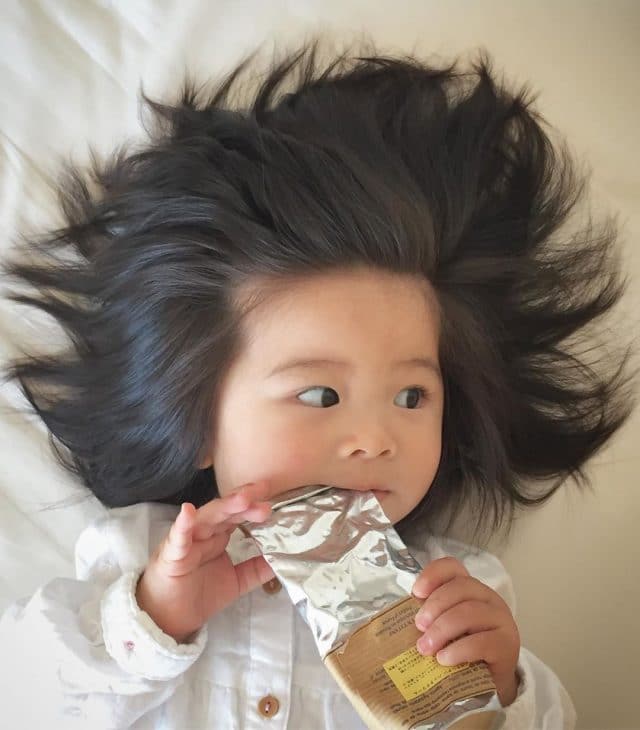
Tatsuo
Tatsuo means “male dragon” or “wise man”.
Taya
Taya means “young”.
Tazu
Tazu means “rice-field stork”.
Tomiko
Tomiko means “wealthy child” or “happy child”.
Tomoe
Tomoe means “a blessing in a form of a friend” or “spiral”.
Tomoko
Tomoko means “child companion” or “smart princess”.
Tori
Tori means “bird”.
Toshiko
Toshiko means “sacred child” or “outstanding child”.
Tsubaki
Tsubaki means “camellia flower” or “the second princess”.
Tsubame
Tsubame means “swallow bird” or “thatched flower”.
Tsukiko
Tsukiko means “moon child” or “built child”.
Tsumugi
Tsumugi means “spinning” or “pongee”.
Tsunade
Tsunade means “mooring rope” or “confident”.
Tsuru
Tsuru means “crane (bird)” or “string”.
Ume
Ume means “plum blossom” or “superior sprout”. In Japan the ume blossom is regarded as a symbol of spring and a ward against evil.
Umeko
Umeko means “plum blossom child” or “patient”.
Wakana
Wakana means “harmonious music” or “young and beautiful”.
Yoko
Yoko means “good girl” or “ocean child”.
Yori
Yori means “reliable” or “edge”.
Yoshiko
Yoshiko means “fragrant child” or “joyful child”.
Youko
Youko means “child of light” or “distant child”.
Yua
Yua means “tie; bind; love; affection” or “bright friend”.
Yui
Yui means “superior garment” or “clothes fastening”.
Yuina
Yuina means “superior greens” or “glaze; clothing; beautiful”.
Yukiko
Yukiko means “snow child” or “lucky and joyful child”.
Yuko
Yuko means “gentle child” or “superior heart”.
Yumi
Yumi means “archery bow” or “beautiful evening”.
Yumiko
Yumiko means “archery bow child” or “rich and beautiful child”.
Yuri
Yuri means “lily” or “superior crystal”.
Yuuka
Yuuka means “gentle blossom” or “evening song”.
Yuuko
Yuuko means “tender child” or “excellent child”.
Yuuna
Yuuna means “tender greens” or “superior beauty”.
Yuzuki
Yuzuki means “good reason” or “hopeful citrus fruit”.
Gender-Neutral Names
Aki
Aki means “autumn; bright; crystal” and pronounced as AH-kee.
Akiko
Akiko means “surrounded by bright light” or “autumn child”.
Akira
Akira means “bright; clear”.
Aoi
Aoi means “bluish” or “hollyhock” and pronounced as A-O-EE.
Asa
Asa means “healer” or “born in the morning”.
Asuka
Asuka means “smell of tomorrow” or “bright sky”.
Botan
Botan means “peony”.
Chiko
Chiko means “pledge” or “morning child”.
Fuji
Fuji means “dweller near the river where wisteria grows”. Fuji is a name usually given in honor of the majestic mountain.
Haku
Haku means “white” or “hundred”.
Haru
Haru means “born in the spring” or “sunshine”.
Haruka
Haruka means “far distant” or “fragrant spring”.
Hibiki
Hibiki means “echo” or “living sound”.
Hide
Hide means “excellent” or “east”.
Hikari
Hikari means “light” or “sunny village”.
Hikaru
Hikaru means “light” or “brightness”.
Hinata
Hinata means “sunny place” or “warm”.
Hiro
Hiro means “broad, widespread” or “generous”.
Hoshi
Hoshi means “star” or “step; remember”.
Iku
Iku means “nourishing” and pronounced as EE-koo.
Izumi
Izumi means “fountain, spring” or “colorful and pure”.
Jun
Jun means “pure” or “obedience”.
Kaede
Kaede means “maple”.
Kai
Kai means “willow tree” or “bosom”.
Kairi
Kairi means “sea” or “ocean village”.
Kaiyo
Kaiyo means “to forgive”.
Kamin
Kamin means “bright flower” or “filled with joy”.
Kane
Kane means “two right hands” or “putting together”.
Kaoru
Kaoru means “fragrant” or “aromatic”.
Katana
Katana means “one-sided edge”. Katana is the name for a type of Japanese sword.
Kazu
Kazu means “the first one” or “disciplined”.
Kazue
Kazue means “one blessing” or “one river”.
Ken
Ken means “to clearly understand” or “healthy, strong”.
Kita
Kita means “north” or “bright and thick”.
Kiwa
Kiwa means “born on a boarder” or “precious and calm”.
Ko
Ko means “child” or “heart”.
Kohaku
Kohaku means “amber” or “white tiger”.
Koko
Koko means “stork”.
Koshoo
Koshoo is a Japanese variation of Pepper which refers to a type of spice.
Kouta
Kouta means “big peace” or “love song”.
Kura
Kura means “dream” or “warehouse”.
Kuri
Kuri means “chestnut” or “sky village”.
Kuro
Kuro means “expert” or “the ninth child”.
Kyo
Kyo is an alternative transcription of Kyou which means “apricot” or “capital city”.
Kyou
Kyou means “apricot” or “capital city”.
Makoto
Makoto means “sincerity” or “ten thousand Japanese harp”.
Maru
Maru means “round” or “board”.
Masami
Masami means “right beauty” or “true kindness”.
Matsu
Matsu means “pine tree” or “true harbor”.
Michi
Michi means “path” or “the righteous way”.
Miki
Miki means “tree” or “beautiful chronicle”.
Minato
Minato means “harbor” or “beautiful sound”.
Minoru
Minoru means “to bear fruit” or “matures”.
Mon
Mon means “gate” or “crest”.
Nao
Nao means “honest person” or “beautiful sound”.
Naoki
Naoki means “honest tree” or “beauty within the flower”.
Naomi
Naomi means “inner beauty” or “straight self”.
Nori
Nori means “seaweed” or “doctrine”.
Ohara
Ohara means “small field” or “thoughtful” and pronounced as oh-hah-rah.
Oki
Oki means “off the coast” or “middle of the ocean”.
Ono
Ono means “small field”.
Oshin
Oshin means “flower” or “cord; vertebral; sound”.
Rai
Rai means “next child” or “trust; lightning; thunder”.
Ran
Ran means “orchid” or “be disturbed”.
Rei
Rei means “bell” or “clever”.
Ren
Ren means “water lily” or “love”.
Riku
Riku means “cool sky” or “land”.
Rikuto
Rikuto means “a harmonious person” or “land; person”.
Rin
Rin means “dignified” or “bell”.
Ruka
Ruka means “bright blue flower” or “fine vigor”.
Ryo
Ryo is an alternative transcription of Ryou which means “cool, refreshing” or “excellent”.
Ryou
Ryou means “cool, refreshing” or “excellent”.
Sai
Sai means “paint” or “vivid”.
Seiko
Seiko means “sincere child” or “star child”.
Seiren
Seiren means “refined star” or “shining bright lotus”.
Sen
Sen means “wood fairy” or “request, span”. Sen is also a Japanese mythology name.
Shin
Shin means “real, genuine” or “heart”.
Shinju
Shinju means “heart; pearl” or “true pearl”.
Shino
Shino means “bamboo stem” or “historical sound”.
Shinobu
Shinobu means “endurance” or “benevolence”.
Shion
Shion means “beautiful star” or “a person who remembers”.
Shiori
Shiori means “bookmark” or “bending”.
Shun
Shun means “fast” or “talented”.
Sora
Sora means “sky” or “refreshing”.
Sou
Sou means “sound of the wind” or “refreshing”.
Taiga
Taiga means “big and well-mannered person” or “tiger”.
Taka
Taka means “falcon” or “multiple aroma”.
Takara
Takara means “treasure” or “jewel”.
Tamami
Tamami means “beautiful black stone” or “beautiful gift”.
Tetsu
Tetsu means “strong as iron” or “philosophy”.
Tokyo
Tokyo means “capital to the east” or “time of opportunity”.
Tomo
Tomo means “intelligence” or “friend”.
Tomomi
Tomomi means “wisdom and beauty” or “true friend”.
Tora
Tora means “thunder” or “tiger”.
Tsubasa
Tsubasa means “wing” or “rare wing”.
Yasu
Yasu means “peaceful” or “gentle”.
Yoshi
Yoshi means “good and respectable” or “good luck”. Yoshi is a classic Japanese name known to kids around the world as a Nintendo video-game character.
Yuki
Yuki means “snow” or “happiness”.
Yuu
Yuu means “brave” or “excellence”.
Yuuki
Yuuki means “hopeful and brave” or “living excellence”.
Zen
Zen means “Buddhism mediation” or “living”. Zen is a school of Buddhism which originated in China during the 7th century and spread to Vietnam, Korea, and Japan.
TRYING TO FIND A BEAUTIFUL NAME FOR YOUR BABY?
Check out our comprehensive list of cute baby names. Meanings and Pronunciations Included.












